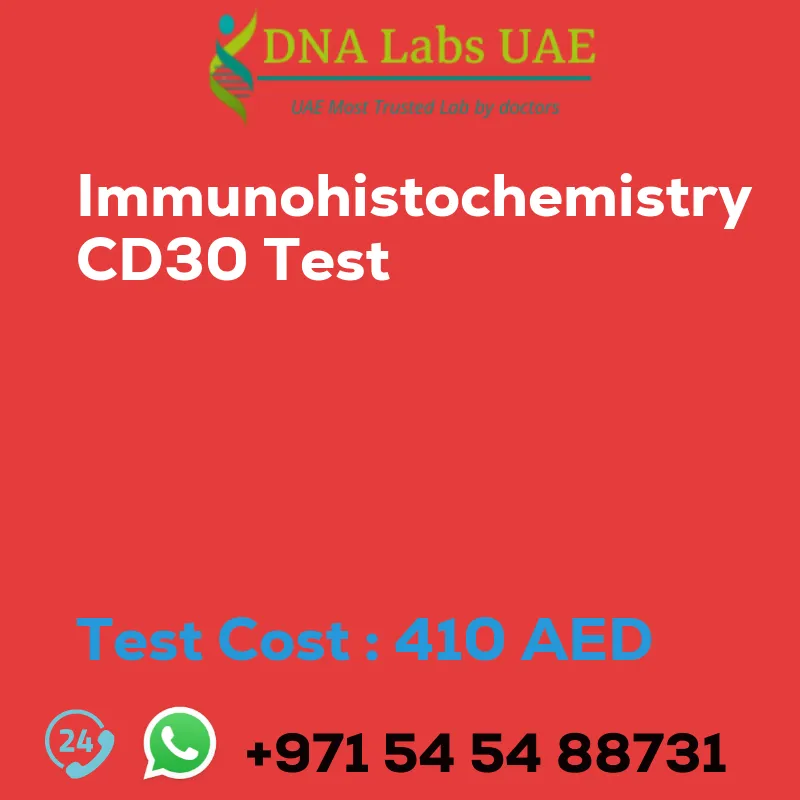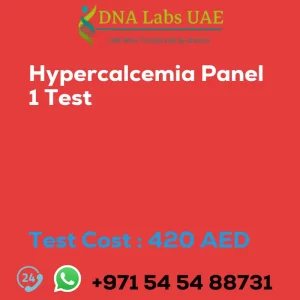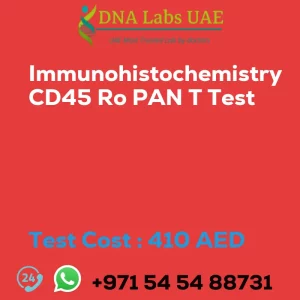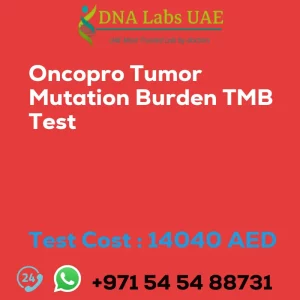IMMUNOHISTOCHEMISTRY CD30 Test
Test Name: IMMUNOHISTOCHEMISTRY CD30 Test
Components: CD30 Test
Price: 410.0 AED
Sample Condition: Submit tumor tissue in 10% Formal-saline OR Formalin fixed paraffin embedded block. Ship at room temperature. Provide a copy of the Histopathology report, Site of biopsy and Clinical history.
Report Delivery: Sample Daily by 6 pm; Report Block: 5 days Tissue Biopsy: 5 days Tissue large complex: 7 days
Method: Immunohistochemistry
Test Type: Cancer
Doctor: Oncologist, Pathologist
Test Department: DNA Labs UAE
Pre Test Information: Provide a copy of the Histopathology report, Site of biopsy and Clinical history.
Test Details:
CD30 is a cell surface marker that is commonly used in immunohistochemistry (IHC) testing. It is a protein that is expressed on the surface of certain immune cells, including activated T cells and B cells.
The CD30 IHC test involves using specific antibodies that are designed to bind to the CD30 protein. These antibodies are usually labeled with a fluorescent dye or an enzyme that can be visualized under a microscope.
The CD30 IHC test is commonly used in the diagnosis of certain types of lymphomas, such as Hodgkin lymphoma and anaplastic large cell lymphoma. These lymphomas often express high levels of CD30 on the surface of the cancer cells.
During the CD30 IHC test, a tissue sample, typically obtained through a biopsy, is first fixed and embedded in paraffin. Thin sections of the tissue are then cut and mounted onto slides. The slides are then treated with the CD30 antibody, which binds to the CD30 protein if it is present in the tissue sample.
After the antibody is applied, the slides are washed to remove any unbound antibody. If the CD30 protein is present in the tissue sample, it will be labeled with a fluorescent dye or an enzyme that can be visualized under a microscope. This allows the pathologist to identify the presence and location of CD30-positive cells.
The results of the CD30 IHC test can help guide treatment decisions and provide important prognostic information for patients with lymphomas. It can also be used to monitor the effectiveness of treatment and detect any recurrence of the disease.
Overall, the CD30 IHC test is a valuable tool in the diagnosis and management of lymphomas, providing important information about the presence and distribution of CD30-positive cells in tissue samples.
| Test Name | IMMUNOHISTOCHEMISTRY CD30 Test |
|---|---|
| Components | |
| Price | 410.0 AED |
| Sample Condition | Submit tumor tissue in 10% Formal-saline OR Formalin fixed paraffin embedded block. Ship at room temperature. Provide a copy of the Histopathology report, Site of biopsy and Clinical history. |
| Report Delivery | Sample Daily by 6 pm; Report Block: 5 days Tissue Biopsy: 5 days Tissue large complex : 7 days |
| Method | Immunohistochemistry |
| Test type | Cancer |
| Doctor | Oncologist, Pathologist |
| Test Department: | |
| Pre Test Information | Provide a copy of the Histopathology report, Site of biopsy and Clinical history. |
| Test Details |
CD30 is a cell surface marker that is commonly used in immunohistochemistry (IHC) testing. It is a protein that is expressed on the surface of certain immune cells, including activated T cells and B cells. The CD30 IHC test involves using specific antibodies that are designed to bind to the CD30 protein. These antibodies are usually labeled with a fluorescent dye or an enzyme that can be visualized under a microscope. The CD30 IHC test is commonly used in the diagnosis of certain types of lymphomas, such as Hodgkin lymphoma and anaplastic large cell lymphoma. These lymphomas often express high levels of CD30 on the surface of the cancer cells. During the CD30 IHC test, a tissue sample, typically obtained through a biopsy, is first fixed and embedded in paraffin. Thin sections of the tissue are then cut and mounted onto slides. The slides are then treated with the CD30 antibody, which binds to the CD30 protein if it is present in the tissue sample. After the antibody is applied, the slides are washed to remove any unbound antibody. If the CD30 protein is present in the tissue sample, it will be labeled with a fluorescent dye or an enzyme that can be visualized under a microscope. This allows the pathologist to identify the presence and location of CD30-positive cells. The results of the CD30 IHC test can help guide treatment decisions and provide important prognostic information for patients with lymphomas. It can also be used to monitor the effectiveness of treatment and detect any recurrence of the disease. Overall, the CD30 IHC test is a valuable tool in the diagnosis and management of lymphomas, providing important information about the presence and distribution of CD30-positive cells in tissue samples. |








